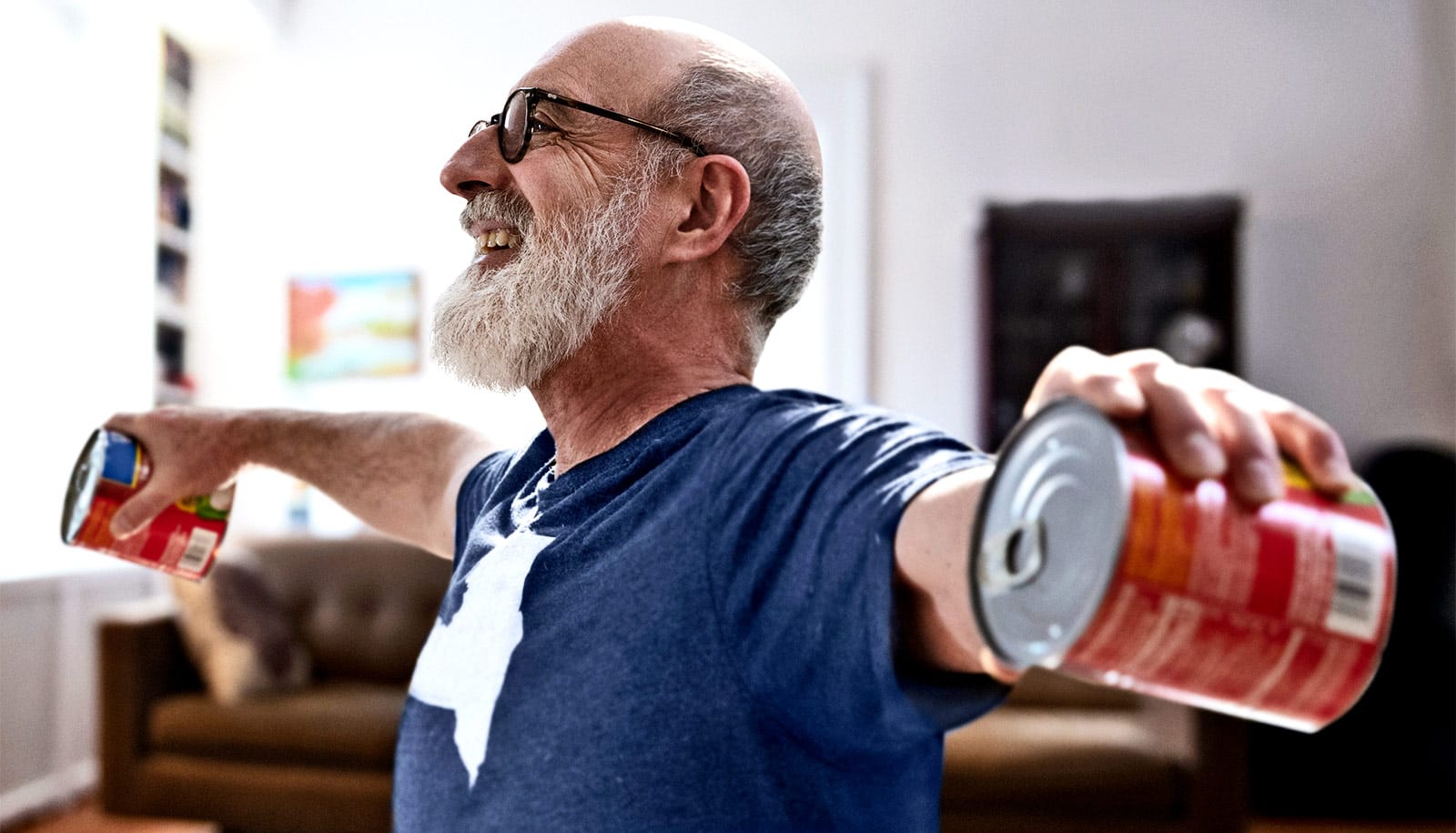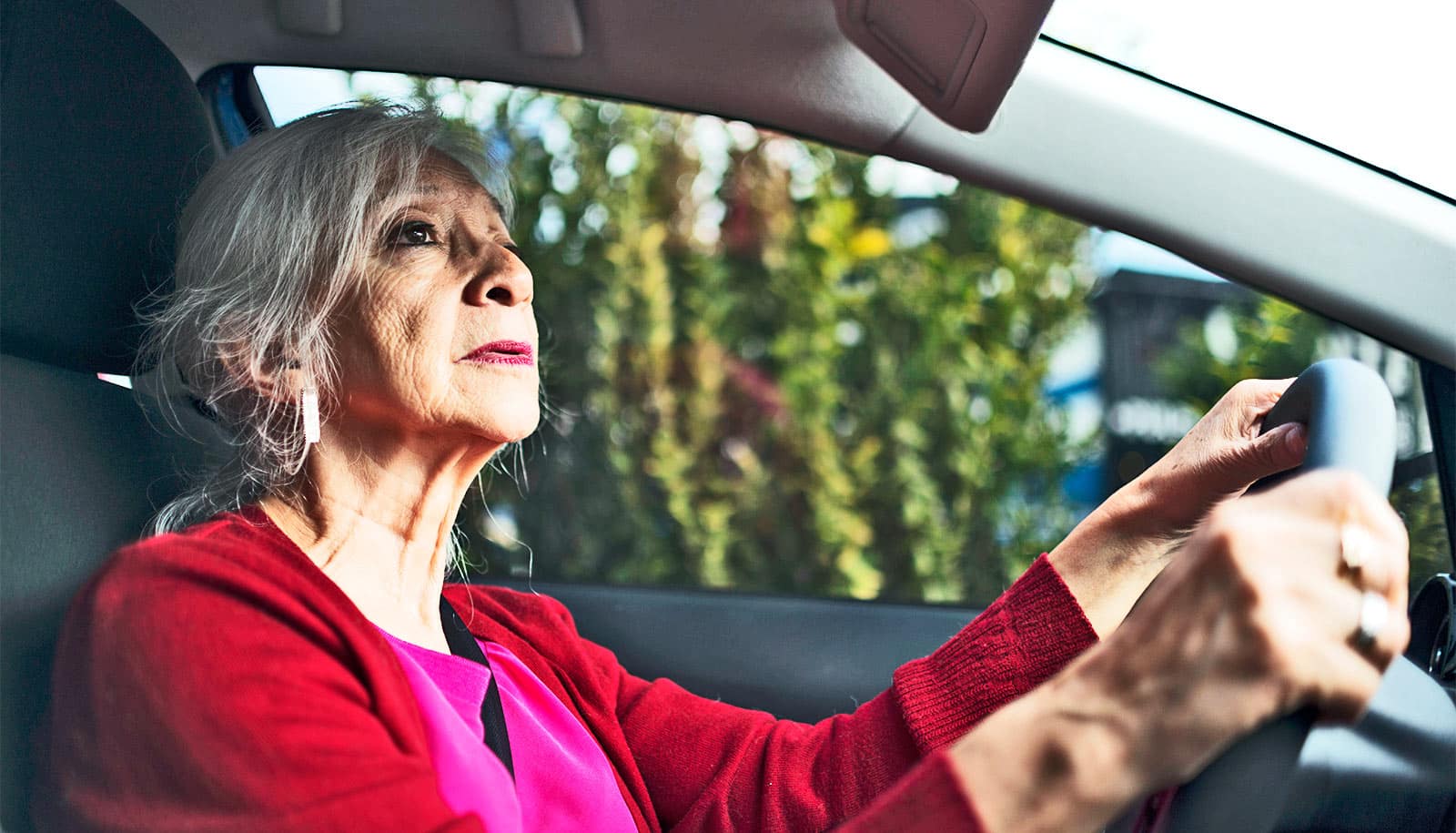A fall-prevention program that includes a tablet-based, gamified exercise app improved exercise frequency for low-income, homebound older adults and reduced their risk for falls, a new study shows.
The program addresses the fact that many older adults are unable to utilize community-based fall prevention programs due to their mobility limitations.
“Our participants were highly receptive to the program and felt empowered when performing the exercises on their own at home,” says Namkee Choi, professor and chair in gerontology at the Steve Hicks School of Social Work at the University of Texas at Austin and lead author of the paper in the Journal of Applied Gerontology.
According to the Centers for Disease Control and Prevention, more than one of four community-dwelling older adults (aged 65 and older) fall each year, and one of five falls causes serious injuries such as broken bones or a head injury.
Community-based, evidence-based fall prevention programs that target balance, resistance, and muscle strength have proven to be effective to reduce fall rates among older adults. Many older adults, however can’t use them because of mobility limitations. This is particularly true for low-income, homebound older adults who lack transportation.
“All of our participants treated the app avatar as if it were their personal trainer; they even gave it endearing names such as ‘Mr. Bob, the workout man’ and ‘the little guy.'”
Choi and her team tested the acceptability of a fall prevention program that consisted of four 90-minute sessions. A physical therapist trained and supervised lay people who then delivered them in the home.
The program included components such as a fall risk assessment, home-safety check, and improvements, coaching, and practice for safe independent walking, and demonstration of how to use a free, tablet-based exercise app called “Keep on Keep Up” or KOKU.
As part of the program, each participant received an iPad preloaded with KOKU, which is operable without an internet connection. Researchers at the University of Manchester in the UK developed KOKU specifically for older adults, with features like a relatable avatar who looks like an older man and speaks with a British accent. This study was the first US-based test of the app.
“The app not only provided easy accessibility to exercise routines but also motivation,” Choi says. “All of our participants treated the app avatar as if it were their personal trainer; they even gave it endearing names such as ‘Mr. Bob, the workout man’ and ‘the little guy.'”
Researchers tested the program with 28 participants recruited through Meals on Wheels of Central Texas. Participants rated the app high on ease of use and helpfulness. They also found the safety-related knowledge useful and felt pride in their ability to develop and implement safety plans and safer ways of practicing everyday tasks such as getting in and out of the shower.
Participants who adhered to the exercise plans reported that they noted improvement in physical functioning such as getting up from a chair with ease, climbing stairs, and going on longer walks.
Based on these promising results, Choi’s team is currently implementing a randomized clinical trial of the fall-prevention program with the lay coaches and the KOKU app to evaluate its effectiveness.
Source: University of Texas at Austin


